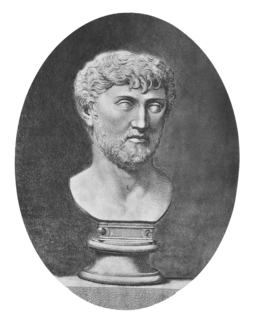 W
WIbn Sina, also known as Abu Ali Sina, Pour Sina, and often known in the West as Avicenna, was a Persian polymath who is regarded as one of the most significant physicians, astronomers, thinkers and writers of the Islamic Golden Age, and the father of early modern medicine. Sajjad H. Rizvi has called Avicenna "arguably the most influential philosopher of the pre-modern era". He was a Muslim Peripatetic philosopher influenced by Greek Aristotelian philosophy. Of the 450 works he is believed to have written, around 240 have survived, including 150 on philosophy and 40 on medicine.
 W
WGautama Buddha, popularly known as the Buddha or Lord Buddha, was a Śramaṇa who lived in ancient India. He is regarded as the founder of the world religion of Buddhism, and revered by most Buddhist schools as a savior, the Enlightened One who rediscovered an ancient path to release clinging and craving and escape the cycle of birth and rebirth. He taught for around 45 years and built a large following, both monastic and lay. His teaching is based on his insight into the arising of duḥkha and the ending of duhkha—the state called Nibbāna or Nirvana.
 W
WMarcus Tullius Cicero was a Roman statesman, lawyer, scholar, philosopher and Academic Skeptic, who tried to uphold optimate principles during the political crises that led to the establishment of the Roman Empire. His extensive writings include treatises on rhetoric, philosophy and politics, and he is considered one of Rome's greatest orators and prose stylists. He came from a wealthy municipal family of the Roman equestrian order, and served as consul in 63 BC.
 W
WConfucius was a Chinese philosopher and politician of the Spring and Autumn period who was traditionally considered the paragon of Chinese sages. Confucius's teachings and philosophy formed the basis of East Asian culture and society, and continues to remain influential across China and East Asia as of today.
 W
WHippocrates of Kos, also known as Hippocrates II, was a Greek physician of the Age of Pericles, who is considered one of the most outstanding figures in the history of medicine. He is traditionally referred to as the "Father of Medicine" in recognition of his lasting contributions to the field, such as the use of prognosis and clinical observation, the systematic categorization of diseases, or the formulation of humoural theory. The Hippocratic school of medicine revolutionized ancient Greek medicine, establishing it as a discipline distinct from other fields with which it had traditionally been associated, thus establishing medicine as a profession.
 W
WTitus Lucretius Carus was a Roman poet and philosopher. His only known work is the philosophical poem De rerum natura, a didactic work about the tenets and philosophy of Epicureanism, and which usually is translated into English as On the Nature of Things. Lucretius has been credited with originating the concept of the three-age system that was formalised in 1836 by C. J. Thomsen.
 W
WSocrates was a Greek philosopher from Athens who is credited as a founder of Western philosophy and the first moral philosopher of the ethical tradition of thought. An enigmatic figure, Socrates authored no texts and is known mainly through the posthumous accounts of classical writers, particularly his students Plato and Xenophon. These accounts are written as dialogues, in which Socrates and his interlocutors examine a subject in the style of question and answer; they gave rise to the Socratic dialogue literary genre. Contradictory accounts of Socrates make a reconstruction of the history of his life nearly impossible, a situation known as the Socratic problem. Socrates was a polarizing figure in Athenian society. In 399 BC, he was accused of corrupting the youth and failing to acknowledge the city's official gods. After a trial that lasted a day, he was sentenced to death. He spent his last day in prison, refusing to escape.
 W
WThiruvalluvar, commonly known as Valluvar, was a celebrated Tamil poet and philosopher. He is best known as the author of the Tirukkuṟaḷ, a collection of couplets on ethics, political and economical matters, and love. The text is considered an exceptional and widely cherished work of the Tamil literature.